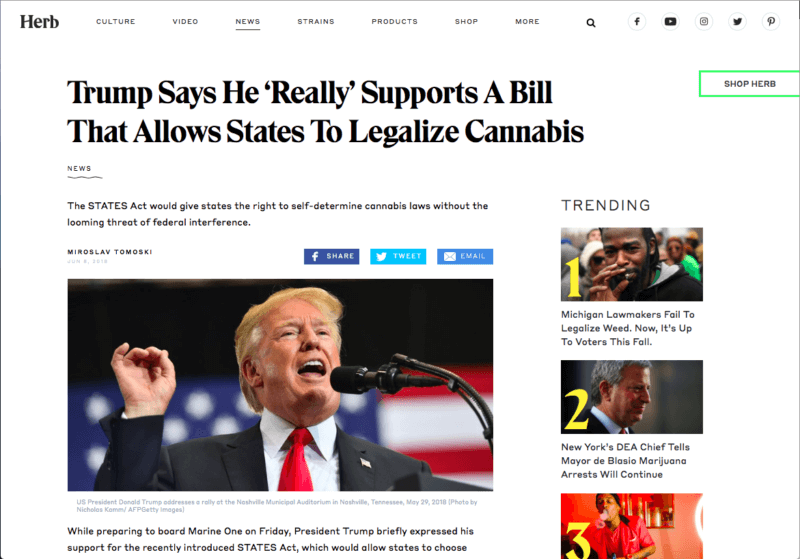Take Action: The Gardner-Warren STATES Act
We were encouraged to see the growing bi-partisan support that is evidenced by the Gardner-Warren STATES act.
We agree with Elizabeth Warren that federal laws are very outdated and that we can “either sit on the sidelines or roll up our sleeves to fix the problem.
As momentum for this bill grows, there are two actions you can take to “roll up your sleeves” and drive even more support:
1) Educate yourself and others on the details
2) Contact your legislators
Use Marijuana Policy Project’s “Click to Call” to reach your legislators quickly.
See what founding partner Diane Czarkowski had to say in this article by Herb.co.
More thoughts from Diane and Jay Czarkowski on the STATES Act:
Without the guidance of the STATES Act, every single state questions how enforcement should occur when state cananbis law conflicts with federal law. This has made it difficult for banks to understand how and if they can work with businesses involved in the cannabis industry.
For our business and the ones we work with, the conflict between state and federal law has very real impacts every day. Often, our clients can’t get bank accounts, and because they’re taxed as if they’re criminals, they can’t create jobs, increase benefits, and contribute to their local economies nearly as much as they’d like. A bipartisan bill that would fix those issues and already has the president’s support is an incredible sign of hope for our industry.
Today, we have over 30 states, the District of Columbia, and 2 US Territories with some form of legalization. There are several more states (like Missouri and Michigan) that have ballot initiatives this fall and even more considering legislative action to legalize in some way. Without the guidance of the States Act, every single state questions how enforcement should occur when state laws conflict with the federal laws. This, in turn, has made it difficult for banks to understand how and if they can work with businesses involved in the cannabis industry; both direct businesses and also ancillary businesses. In addition, the businesses that are direct, plant-touching businesses are not able to take standard business deductions on their taxes, and are facing upwards of 70-80% taxation. The States Act will allow these businesses to operate like any other business which, in turn, will allow these cannabis businesses to use those funds to bring more jobs to the communities they serve.
We can’t deny that historically, enforcement and the criminal justice system has unfairly targeted people of color, and this cannot continue. We are not sure now the States Act will directly help in this area, but our hope is that it will indirectly help. It will provide more guidance to follow the state laws and not the federal laws when there is a conflict.
Diane had the opportunity to meet and talk with Senator Warren at NCIA Lobby Days in 2017 and was encouraged, then, by the support and knowledge of this key issue that Warren demonstrated.
“When I talked with Senator Warren,” Diane noted, “she assured me that she had spoken with a number of her constituents about all of the issues that they were dealing with regarding taxes, banking, and the conflict with the Controlled Substances Act. She took that information and was working with banks, in particular, to educate them on the issue and to try to find a way to allow more cannabis businesses access to banking.”

Diane with Elizabeth Warren

Canna Advisors team with Elizabeth Warren
